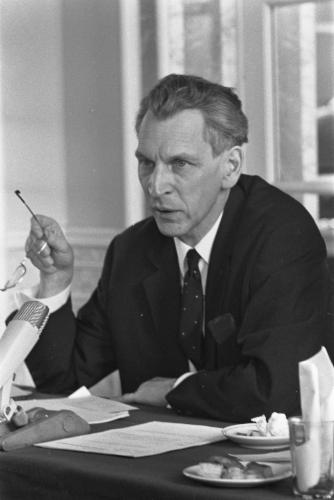Concert voor piano en klein orkest op. 30
By Marius Flothuis
Details
Concerto for piano and small orchestra
Allegretto piacevole
Larghetto
Molto vivace
Motto: “tantus labor non sit cassus” (from Dies irae) ‘let not so much hardship be in vain.’
Program note: The 'Concerto' was completed in 1948. It was written for a young Dutch pianist, whose very small hands did not allow her to play the romantic repertoire and the greater part of the contemporary works. It occurred to me that it should be possible to write a concerto in a contemporary idiom, the technical demands of which would not exceed those of a Mozart Concerto. In connection with this I chose a very small orchestra, containing only 1 flute, 1 oboe (cor anglais in the second movement), 1 clarinet, 1 bassoon, 2 horns, timpani and strings.
The structure of the work is very simple and almost classic. The first movement has three themes, succeeding each other in the following order: a-b-c-b-a. The second movement is in ternary form, the last is a rondo. Themes of the first and the third movement are combined in the finale.
The 'Concerto' is dedicated to Miss Maria Stroo, who played it several times, e.g. at the ISCM-festival in Brussels in 1950. - MARIUS FLOTHUIS
Amsterdam


